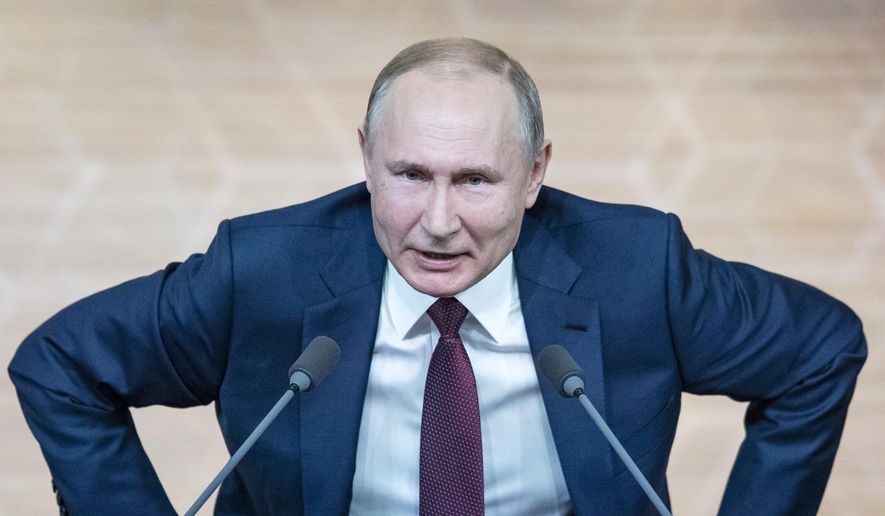OPINION:
Last month, the Justice Department’s inspector general released his highly anticipated report on the origins and early phases of the FBI’s inquiry into Russian meddling in the 2016 election.
While lawmakers rightly focused on questions of whether investigators abused the FISA surveillance system, the IG report’s debunking of another conspiracy theory, which gained traction in the months leading up to the 2016 presidential vote, received less attention than it deserves.
In the summer of 2016, a group of cyberscientists code-named “Tea Leaves” claimed the Russian Alfa Bank computer server was a covert communication link between the Trump Organization and the Kremlin. The notorious Steele “dossier” alleged that there was cooperation between Alfa Bank and the Kremlin, which appeared to validate the “Tea Leaves” contention.
The story of the server and its data was at first glance technically complex. The “Tea Leaves” team’s assessment and assumptions went largely unchallenged, especially among those who were already predisposed to the “secret server” allegation.
On Oct. 31, 2016, just days before the vote, Hillary Clinton tweeted that “computer scientists have apparently uncovered a covert server linking the Trump Organization to a Russian-based bank.” Professing “this secret hotline may be the key to unlocking the mystery of Trump’s ties to Russia,” Hillary for America Senior Policy Adviser Jake Sullivan claimed that “this could be the most direct link yet between Donald Trump and Moscow.”
According to the IG report, the FBI investigated and concluded by early February 2017 that there were no cyberlinks between Mr. Trump’s business organization and Alfa Bank. The IG report also debunked the Steele dossier, about which former National Security Council Senior Director for Russia Fiona Hill had “misgivings and concerns.” Ms. Hill thought dossier author Christopher Steele, a former British intelligence official, was being “played.”
The “secret server” was actually Cendyn Servers, which was providing marketing services for multiple hotel chains, including those owned by Donald Trump. Cendyn was sending marketing emails to corporate and leisure guests, covering over 1 billion communications per year. Statistically, it would have been possible to uncover a link between “Hotel A” and “Country B” in any subset of Cendyn marketing activities and the corresponding Domain Name System records.
Having spent a good portion of my 30-year government career, including with the CIA tracking Russian intelligence operations, I know that the Kremlin would use far more sophisticated tradecraft for clandestine communications than a commercial bank server.
Considering means, motive and opportunity, the Kremlin is a prime suspect in the server conspiracy. “Tea Leaves” members were either less technically savvy than they professed or had some ulterior motive.
There is no doubt, however, that the server conspiracy provided additional fodder to the Kremlin’s influence operations, designed to inject a virus of doubt and cynicism into our political process. Mr. Putin wanted one side to accuse the other of crimes they did not commit, even if the “evidence” appeared otherwise. The Russian leader’s goal: to spark an investigation of the Trump campaign, which would profess its innocence and complain of unfair treatment.
Consider the infamous June 2016 Trump Tower meeting, which a British publicist arranged with an email. The Russians who attended the meeting had obvious Kremlin ties, including in one case a link to the FSB. This was never meant to be a clandestine meeting, and no information of any value was exchanged. It was a poison pill, designed to put the Trump team on the defensive about its alleged ties to Russia when it came to light.
Rather than use his espionage services to conceal Russia’s interference in our election, Mr. Putin outsourced cyberattacks to the Internet Research Agency (IRA). Special counsel Robert Mueller indicted the IRA’s chief financier, Yevgeny Prigozhin, also known as “Putin’s chef.”
Mr. Putin, who spent his formative years in the KGB and later served as director of Russia’s FSB security police, wanted the world to know he was seeking to influence U.S. public opinion. Mr. Putin seeks to destabilize what threatens him most: our democracy, with a hint of conspiracy courtesy of a Kremlin return address.
One lesson is already crystal clear. Allowing predisposed bias to cloud analytical judgments only pours gasoline onto our already burning hot partisan fires. Both Democrats and Republicans would do well to aim their rhetorical fire first on our common enemy, the Kremlin, rather than engage in fratricidal attacks on each other.
⦁ Daniel N. Hoffman is a retired clandestine services officer and former chief of station with the Central Intelligence Agency. His combined 30 years of government service included high-level overseas and domestic positions at the CIA. He has been a Fox News contributor since May 2018. Follow him on Twitter @DanielHoffmanDC.




Please read our comment policy before commenting.